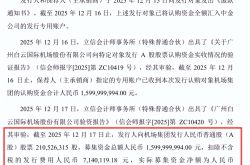Fintech, swimming deeper into the real economy
![]() 11/07 2024
11/07 2024
![]() 553
553
If you still view fintech through the lens of the past, you will fail to see its full picture.
Historically, fintech was merely a concept introduced by players aiming to attract and monetize traffic.
Essentially, it did not differ much from internet finance.
As a result, despite numerous transformations, previous iterations of fintech remained trapped within the confines of internet finance, unable to break free from its shackles.
To usher fintech into a new development cycle, it is imperative to adopt a fresh perspective.
In this process, severing fintech's dependency on internet finance is crucial for its sustained growth.
Ultimately, fintech must reconcile the relationship between 'finance' and 'technology', establish the primacy of 'finance', identify commonalities between the two, and ultimately escape the development quagmire of internet finance.
After a period of reshuffling and regulation, fintech is emerging from the shadow of internet finance, finding a path suited to itself and constructing a proper development trajectory that integrates 'finance' and 'technology'.
If we were to summarize the current state of fintech, its dive into the depths of the real economy stands out as a pivotal aspect.
Giants Test the Waters, Fintech Finds New Paths
Whether in the internet era or post-internet era, pioneering efforts by leading players have always set an example and spurred progress.
This is equally evident in the fintech industry.
When fintech first emerged, it was the advocacy of leading players that shifted public focus from internet finance to fintech.
Now, as fintech undergoes another transformation, we see players like Ant Group and JD.com Technology testing the waters, initiating new developments in fintech through their own experiments.
Observing these giants' forays, it's clear that fintech players no longer view themselves as entities independent of industries but as deeply integrated parts of them.
This is evident in their deep empowerment of real economy players and their involvement in the actual operations of the real economy.
Currently, fintech has moved beyond the traffic-centric development model of the past, pursuing a more long-term and sustainable approach.
For fintech, this represents a significant innovation.
For giants accustomed to a traffic-centric focus, reversing this ingrained mindset is no easy feat.
Fintech is no longer traffic-centric but has become deeply integrated with and coexisting with the real economy.
This marks the beginning of a new era for fintech, ushering it into a new stage of development.
Deep Integration: Fintech is No Longer an Either-Or Proposition
If fintech remains a simple juxtaposition of 'finance' and 'technology', like internet finance, its development will remain indistinguishable.
Observing current fintech players, it's clear that 'finance' and 'technology' are no longer independent or disconnected but deeply integrated.
In other words, fintech has become fintech itself.
When fintech becomes an independent entity, no longer solely 'finance' or 'technology', its development truly enters a new stage.
At this stage, fintech embodies both 'finance' and 'technology', playing a foundational role rather than a superficial one.
To maximize this role, fintech must continually deepen its integration with the real economy and participate in its operations.
Without this, fintech's potential cannot be fully realized.
The deep integration of 'finance' and 'technology' and the resulting new functionalities of fintech are undeniably crucial evidence of its dive into the real economy.
The deep integration of 'finance' and 'technology' gave rise to new functionalities and attributes of fintech, necessitating its dive into the real economy to seek new growth momentum.
Platform Decline, Fintech Hidden in the Real Economy
Today, few fintech players view themselves as centers or platforms, nor do they blindly pursue scale. Instead, they focus on integrating into the real economy's nuances to better serve it.
As a result, the platform-centric model is gradually being abandoned, with fintech blending into and becoming part of the real economy.
This too is evidence of fintech's dive into the real economy.
Whether empowering real economy players through technological advancements or providing financial support through their financial expertise, fintech players no longer view platforms as their sole objective. Instead, they explore new ways to empower the real economy.
Similarly, their profit models are no longer reliant solely on matchmaking and intermediation but on enhancing industry efficiency through transforming real economy players.
In this context, fintech takes a backseat, with real economy players taking center stage.
While fintech may appear less vocal, its impact and transformation of the real economy remain significant.
This model maximizes the potential of 'finance' and 'technology', guiding fintech towards a more sustainable development cycle.
Abandoning Scale and Efficiency, Fintech Bids Farewell to the Internet
Historically, fintech's business model was driven by scale and efficiency.
Under this model, players sought growth through continuous expansion.
While this approach rapidly enhanced industry efficiency, it was unsustainable.
As fintech enters a new stage, especially by abandoning the scale- and efficiency-driven model, we see a shift away from internet-centric models towards a new, infrastructure-driven approach.
Unlike the scale- and efficiency-driven model, this new model tests players' ability to deeply integrate with and transform the real economy.
To achieve this, fintech must abandon the old model and seek new paths.
The key lies in continually strengthening integration with and establishing connections to the real economy, discovering new drivers for its growth through this integration.
To achieve this, fintech must dive into the real economy.
It's foreseeable that future fintech players who forge strong ties with the real economy and find sustainable ways to empower it will gain an edge in this new stage of development.
Ultimately, abandoning the scale- and efficiency-driven model and seeking new, sustainable paths is essential for fintech's dive into the real economy.
Conclusion
For fintech today, diving into the depths of the real economy is undoubtedly paramount.
Whether it's giants testing the waters, the deep integration of 'finance' and 'technology', the decline of platforms, or the exhaustion of scale- and efficiency-driven models, these are the internal drivers shaping fintech's direction.
Recognizing these trends and finding the right development model will enable players to tap into the potential of fintech's new stage and continue leading the industry's evolution.





